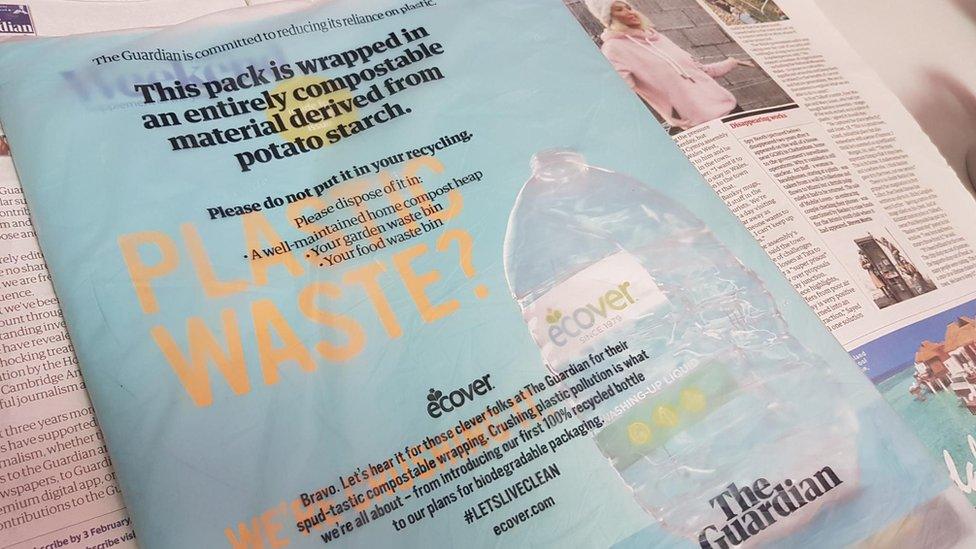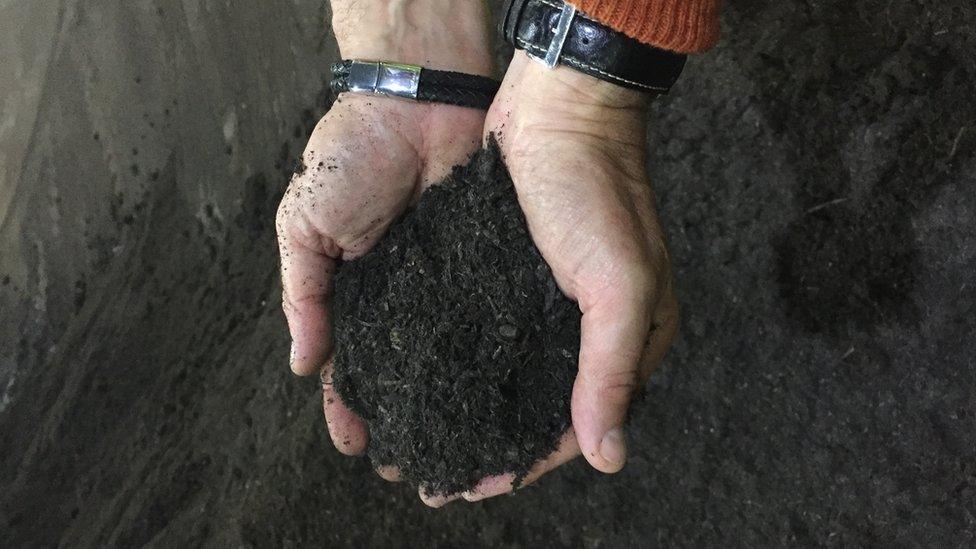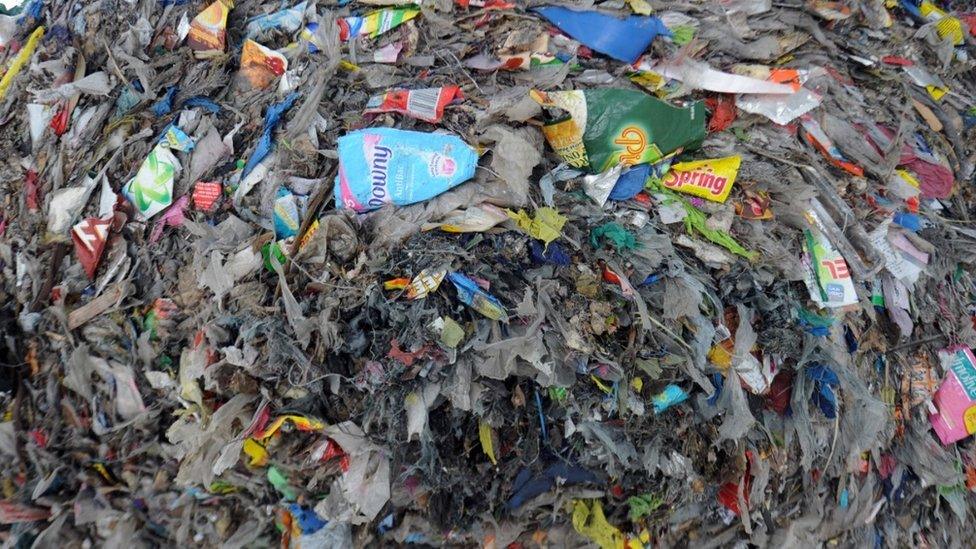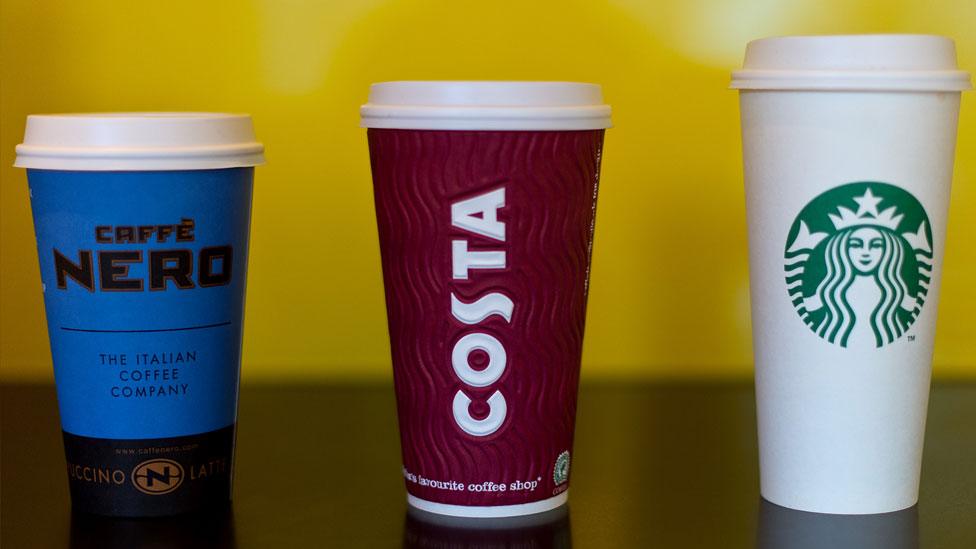Guardian switches to potato starch wrapping
- Published

Guardian readers have been opening their weekend paper to find supplements wrapped in a compostable material made from potato starch.
The paper says it ditched its polythene covers after feedback from readers.
Advice on the wrapping says it should not be recycled but disposed of on a compost heap or in a food waste bin.
The change, which the Guardian says will increase its production costs, has been introduced in London, Kent, Essex, Hertfordshire, Norfolk and Suffolk.
It plans to phase in the new wrapping across the whole of the UK over the coming months.
The packaging has a silky feel and is not entirely transparent like plastic.
The Guardian said the wrap was suitable for domestic composting and designed to "completely compost within six months in a well-maintained compost heap or food waste bin".
Reaction on social media has been mainly positive, although some readers were unsure whether their local authority would allow it in their food waste bin and whether it would ever fully break down.
Allow X content?
This article contains content provided by X. We ask for your permission before anything is loaded, as they may be using cookies and other technologies. You may want to read X’s cookie policy, external and privacy policy, external before accepting. To view this content choose ‘accept and continue’.
Allow X content?
This article contains content provided by X. We ask for your permission before anything is loaded, as they may be using cookies and other technologies. You may want to read X’s cookie policy, external and privacy policy, external before accepting. To view this content choose ‘accept and continue’.
The Guardian said it would not reveal the extra cost involved in switching to the packaging.
Other publications have already moved to potato starch wrapping, including the New Internationalist and the National Trust members' magazine, but the Guardian says it is the first national newspaper to do so.

What is potato starch packaging?
Usually comes from waste potatoes so you don't need to grow a crop to make it
100% compostable
Contains no oil-based materials, plastics or harmful toxins
Durable
Carries the EN13432 industrial certification. OK compost HOME certification, which the Guardian wrapper has, is the equivalent for domestic compost

Other national newspapers say they have been experimenting with more environmentally-friendly ways to distribute their magazines, supplements and advertising leaflets.
The Times said it was trialling biodegradable bags and "belly bands" - a looped strip of paper - and hoped to roll out at least one of these options "as soon as we can".
A spokesman for the Mail on Sunday said: "We are actively investigating an alternative to polythene bags, in particular using a form of paper packaging."
The FT said it removed all plastic packaging of home deliveries at the start of the year - and papers sold in newsagents and supermarkets have always been unwrapped.
The move at the Guardian coincides with a 30p price hike of the Saturday edition to £3.20. The price of the weekday edition and the Observer are also going up by 20p, to £2.20 and £3.20 respectively.
- Published12 September 2018

- Published23 July 2018

- Published17 April 2018
